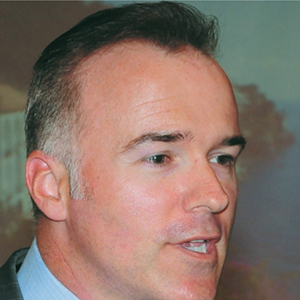
Front of the Room – Brian Lange
Is it time to change what you’ve always done?
 We tend to be creatures of habit. We develop routines and replicate them with great consistency(morning or nighttime grooming rituals; the order of morning activities: coffee, shower, breakfast, etc.). I recall hearing a motivational speaker years ago proclaim that, “if you haven’t changed your alarm wake-time setting in more than a week—you’re in a rut!”
We tend to be creatures of habit. We develop routines and replicate them with great consistency(morning or nighttime grooming rituals; the order of morning activities: coffee, shower, breakfast, etc.). I recall hearing a motivational speaker years ago proclaim that, “if you haven’t changed your alarm wake-time setting in more than a week—you’re in a rut!”
This tendency to develop and repeat patterns definitely carries over to the workplace, and can lead to an oft-heard exchange:
Question: “Why do we do this?”
Answer: “I don’t know. We’ve always done it that way.”
Let me suggest that if you ever provide that answer in a conversation, you might want to do some soul-searching and really rethink the answer to come up with something more credible and more meaningful!
In the PrimeTime! For Trainers workshop, we take aim at those “we’ve always done it that way” training practices.
For instance, handing out detailed agendas with specific times on them or asking the class, “What topics are you hoping to address in this class?” (When the facilitator often has no ability or intention to modify or flex their content anyway.)
This requires us to become critical thinkers — assessing and challenging the ways in which we work — and always with an ultimate focus on the learner.
Shifting the Focus
When I make my pitch for not giving participants detailed, time-bound agendas, I often lead with the question, “How does a detailed agenda help the learner?” Know what the most frequent answer is over the years?
“I don’t know. We’ve always done it that way.”
When you dig in, you quickly see that an agenda with times can help certain learners have a needed overview of the upcoming experience. But, upon even deeper review, we learn that the lists of cons (attendees critiquing the trainer for being “behind” or a facilitator cutting off good class dialogue because of the “schedule,” etc.) can often outweigh the advantages. Thus, after really thinking about why something is done a particular way, many folks have transitioned to sharing topics that will be covered — but not the times anticipated for each.
Something Unexpected
Shifting our focus toward the learner’s overall experience can help us deploy critical thinking skills that can enhance our deliveries.
For example, I recently had a neat opportunity to provide some development for new summer interns at one of our client organizations (workplace “success” tips, communication pointers, presentation skills, etc.). Their internship was going to culminate in individual presentations of findings and ideas from a special project that each was going to complete.
We talked about what it was going to be like for the executives who were going to hear all of the presentations during a full day. By the fifth or sixth presentation — with a likely very similar format (e.g., who I am; what I worked on; what I learned; my ideas moving forward — and a bunch of PowerPoint slides), the executives were probably going to be feeling things were fairly monotonous.
So the opportunity was to deliver the unexpected — something different (format, means of engaging, etc.).
We talked about asking questions of the audience at the beginning to get them thinking (and involved) about the topic at hand. After being the recipient of many deliveries that day, this would likely be a welcomed — and unexpected — change to actually include the audience members in the delivery.
Conclusion
The easy thing to do is the expected, the routine. As folks who are tasked with creating engaging learning experiences for people, let’s remember to challenge ourselves and really see the experiences we create through the eyes of our participants.
Here’s to delivering the unexpected!
 Brian Lange is with Perim Consulting and serves as lead facilitator for LTEN PrimeTime! For Trainers Core and Masters Workshops. Email Brian at blange@perim.com.
Brian Lange is with Perim Consulting and serves as lead facilitator for LTEN PrimeTime! For Trainers Core and Masters Workshops. Email Brian at blange@perim.com.








